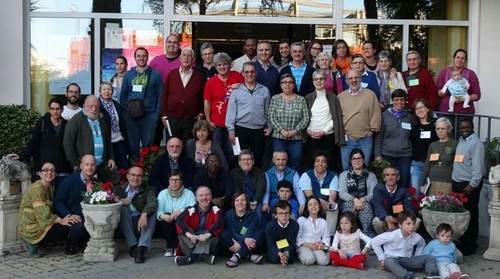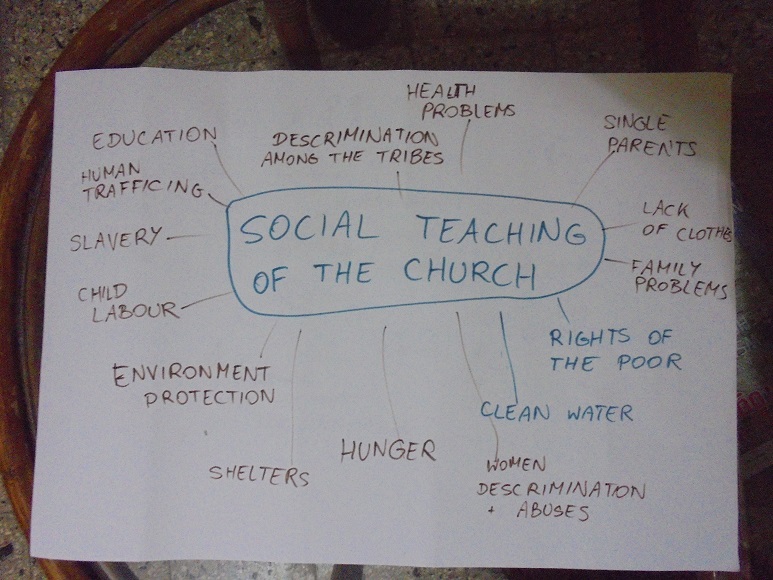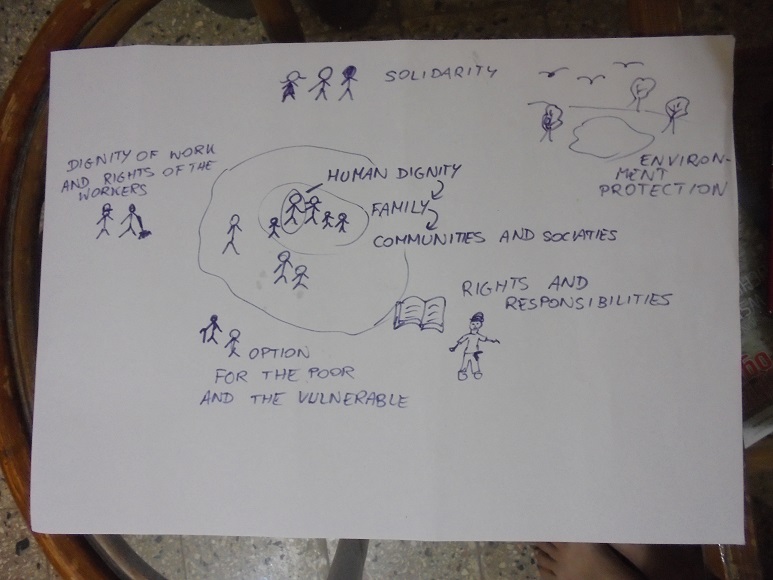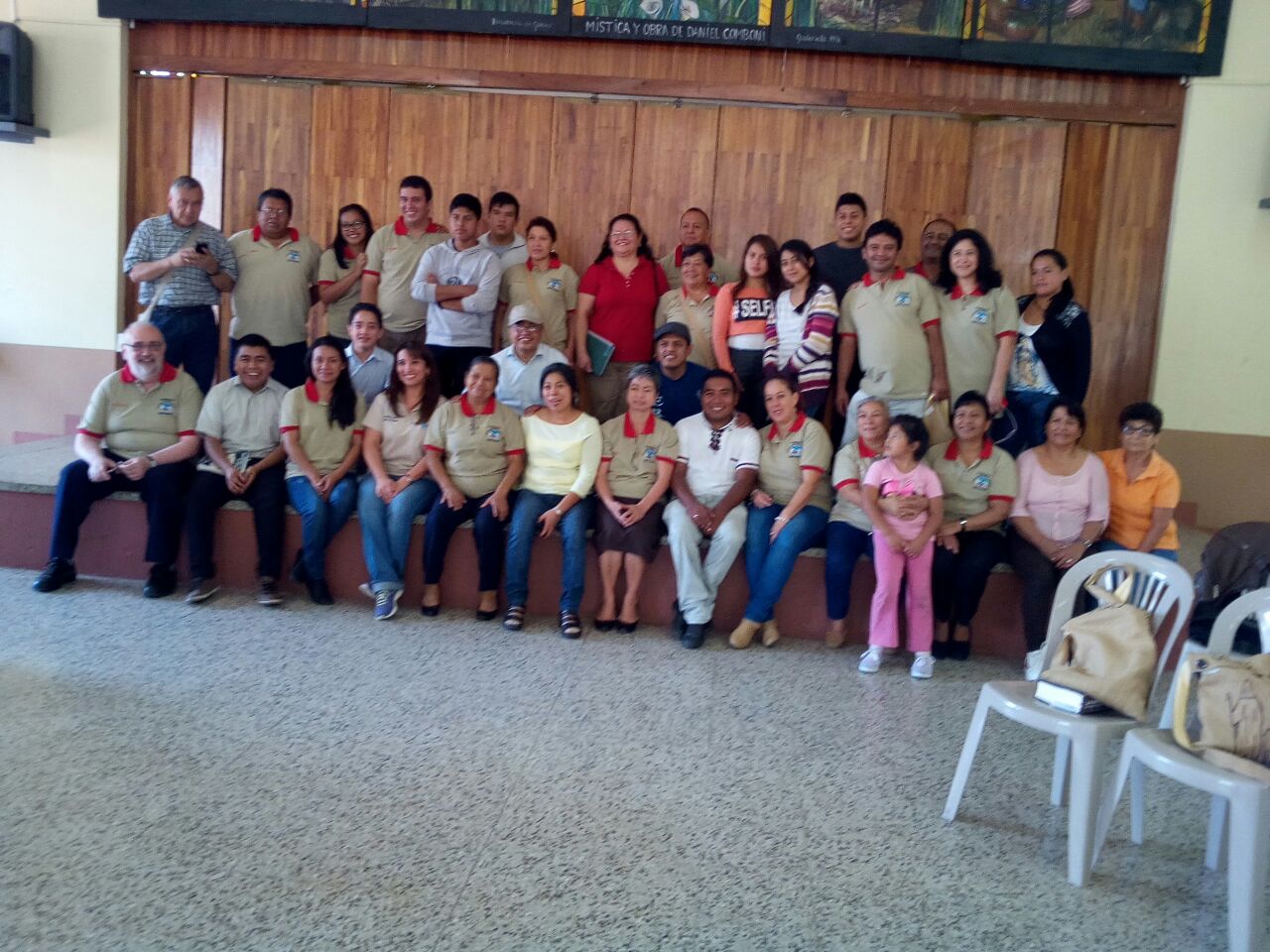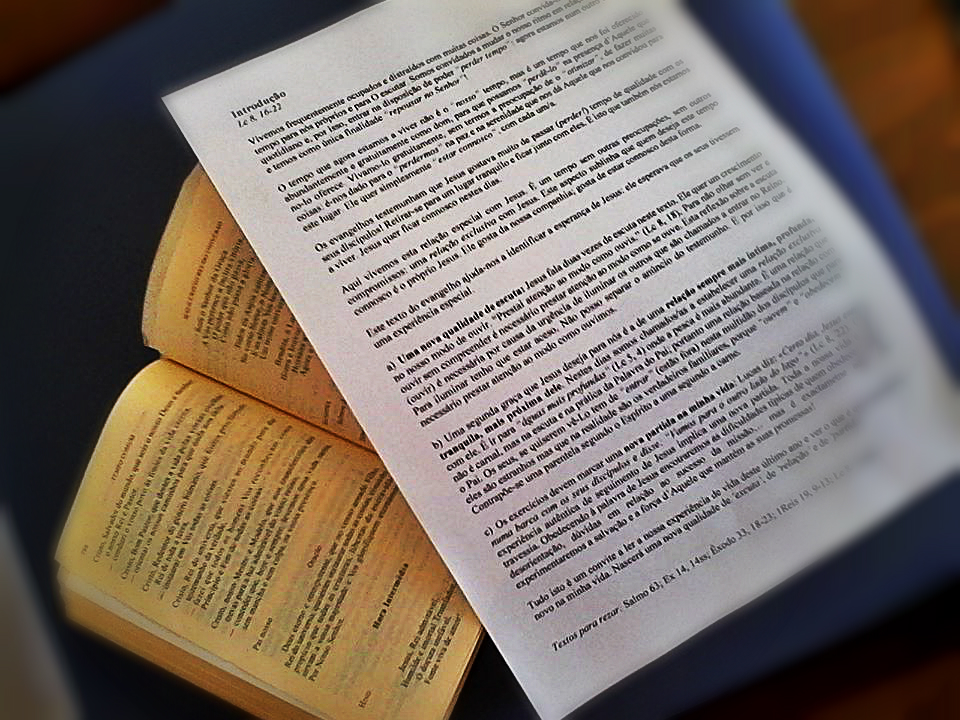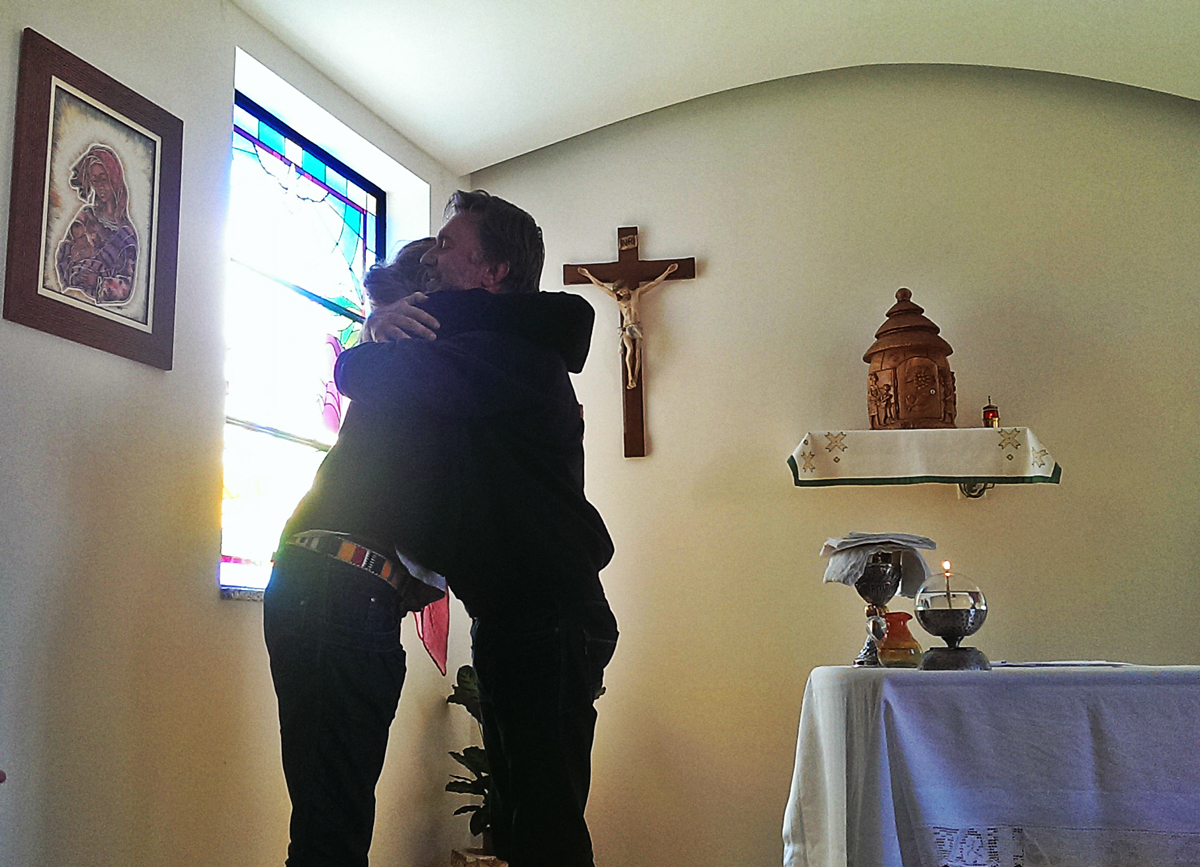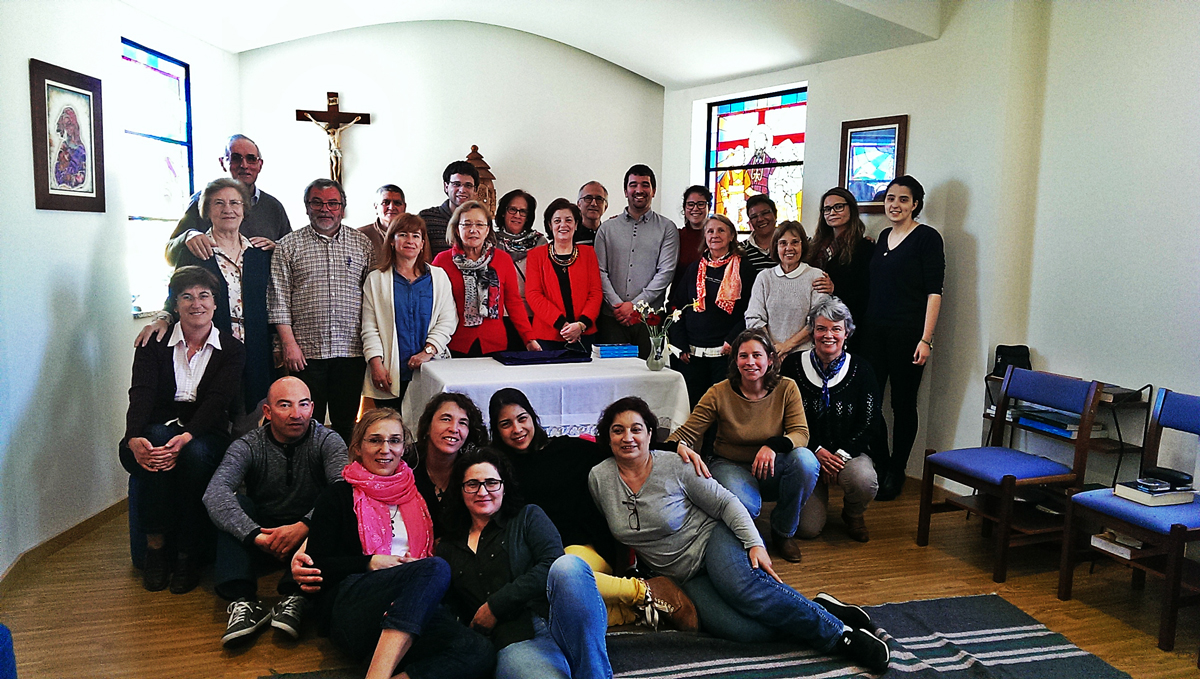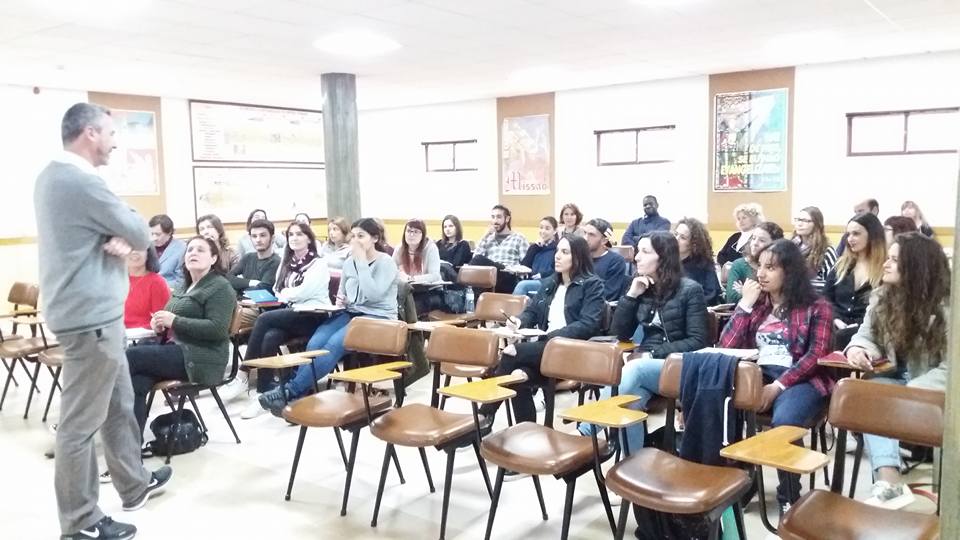 The third formation session of the Faith and Cooperation Foundation (FEC) on the topic of Mission, Cultures and Religions took place on March 11-12. This time it was held at the Capuchins’ house in Fatima. The moderator was Bro. Vítor Lameiras, a member of the Hospitaller Order of St. John of God.
The third formation session of the Faith and Cooperation Foundation (FEC) on the topic of Mission, Cultures and Religions took place on March 11-12. This time it was held at the Capuchins’ house in Fatima. The moderator was Bro. Vítor Lameiras, a member of the Hospitaller Order of St. John of God.
We can only confront our culture when we know another.
Saturday began with the theme of inculturation, as a way to approach. The speaker gave a brief explanation of the concept of inculturation. He stressed that it presupposes the ability of starting a dialogue with other cultures rather than imposing our own. It is strictly connected to the values of Christian faith and to its adaptation in a different cultural context.
The afternoon program followed a shared meal. We spoke of mission and culture in dialogue. Here we had the opportunity to reflect on the many pre-conceived ideas that can exist concerning other cultures and, above all, on the Gospel values that are evident across the world and in all cultures, as being the same. They are not “solely Christian” values, but rather universal. And what are these Gospel values? They are the values that allow a dialogue between cultures: first of all love (“to love to the point of loving the enemy and give one’s life”), tolerance, humility, spirituality, giving, acceptance, sacrifice, trust, faith, fidelity, the capacity of active listening, opening to those who are “different,” detachment. We are called to sow, not to reap.
Knowing that mission does not exist as a mechanism of escape and flight, this requires great integrity on our part, a heart open to what is new, total availability of our soul, it also requires honesty and humility, values deeply rooted in a greater commandment: “Love one another as I have loved you.” The only certainty that accompanies us is the certainty of love, gratuitous love, as the principal value that will give life to mission.
Following, we saw a video on the mission experience of Catarina Lopes of the FEC team of East-Timor. From this video, we are left with the image of a great missionary. Let us be honest: in all the segments of formation Catalina surprises us and makes us think of something else, of her missionary experience and the fruits that came of it. From the video, we were left with some sentences that she was writing in her diary during her mission there and that she shared with us:
Here (in East-Timor) we cry over death because we celebrate life.”
“Our job is to sow, not to reap.”
“I thought that I was going to save the world (…) I discovered that the world saved me.”
Following this moving video, we began to work: we started with a hands on activity “face to face. Which means that Bro Victor challenged us to share our values as a couple by using our hands. This turned out to be an interesting exercise of knowing the other and of the other’s way of making oneself known through the hands. First of all, it requires an attitude of active listening devoid of judgment of the other. At the end, each one told the group what the partner had said both in words and with the hands. We came to the conclusion that both the hands and the way we relate to the world speak volumes about ourselves and we need to look at the other without prejudice. This is something that is certainly necessary when we try to relate to other cultures, in inculturation, when we try to enter another culture.
Bro Victor also proposed another group activity. There was a group representing a specific Portuguese population with specific needs, and another representing missionaries. The objective was that the group with specific needs would alert the group of missionaries. Then the missionary group had to identify their abilities/capabilities/gifts, how the needs could be answered, the characteristics of that population (rhythm of life, culture, traditions, customs, education, etc. and, secondly, together with the asking group, come up with a plan of action/a mission with objectives, a methodology and a time line. Several conclusions emerged from this activity, namely: difficulties in communication between the two groups and within each group, the importance of humility in order to learn how to say “I can’t do it.”
In the evening we listened to the missionary testimony of Daniela Pereira of the Hospitaller Youth, who shared her missionary experience of a year in Mozambique. The experience marked her for life, as it was reflected in her eyes and in the frailty of her voice. Saturday ended with prayer in the Shrine of Fatima. Thus, together with Mary, we had the opportunity to reflect over all that we had heard and to offer her the next day.
On Sunday we began with group work, just as on Saturday: here again we had two groups – a group of missionaries getting ready for mission from which four candidates were picked to go; the other group picked to represent an African people of their choice. The “African” group picked the Democratic Republic of Congo, identifying the problems of child exploitation, and the health situation. While presenting the problems to the missionary “candidates,” they in turn introduced themselves with their motivations/talents/gifts. It was a very active exercise that allowed us, among other things, to realize the difficulties involved in formation, namely: difficulties in facing the real needs of the country, since we do not know many of the specifics of the other culture. There may be many candidates, but not everyone can go. This is a difficult moment in formation: to accept our own frailty, of being incomplete, on a journey, unable and that it is not all bad. When we lose the ability to ask questions, we lose the capacity to live fully the gift of life.
Those who love, make mistakes
The meeting ended in the best of ways, with the celebration of the Eucharist in the Shrine of Fatima.

By Carolina Fiúza y Neuza Francisco.
CLM of Portugal
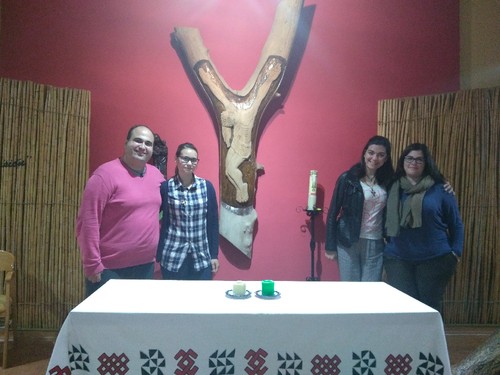 Just like those who start a journey and leave the comforts of home, we, too, our bags on our shoulders and with hearts full of certainties and doubts, started on our journey… Pilgrims, on a road without beginning or end, through ways and byways and more that had never been tried. We advanced on open grounds, through places full of history, on roads paved with love, we walked with Him, full of Mary.
Just like those who start a journey and leave the comforts of home, we, too, our bags on our shoulders and with hearts full of certainties and doubts, started on our journey… Pilgrims, on a road without beginning or end, through ways and byways and more that had never been tried. We advanced on open grounds, through places full of history, on roads paved with love, we walked with Him, full of Mary.



